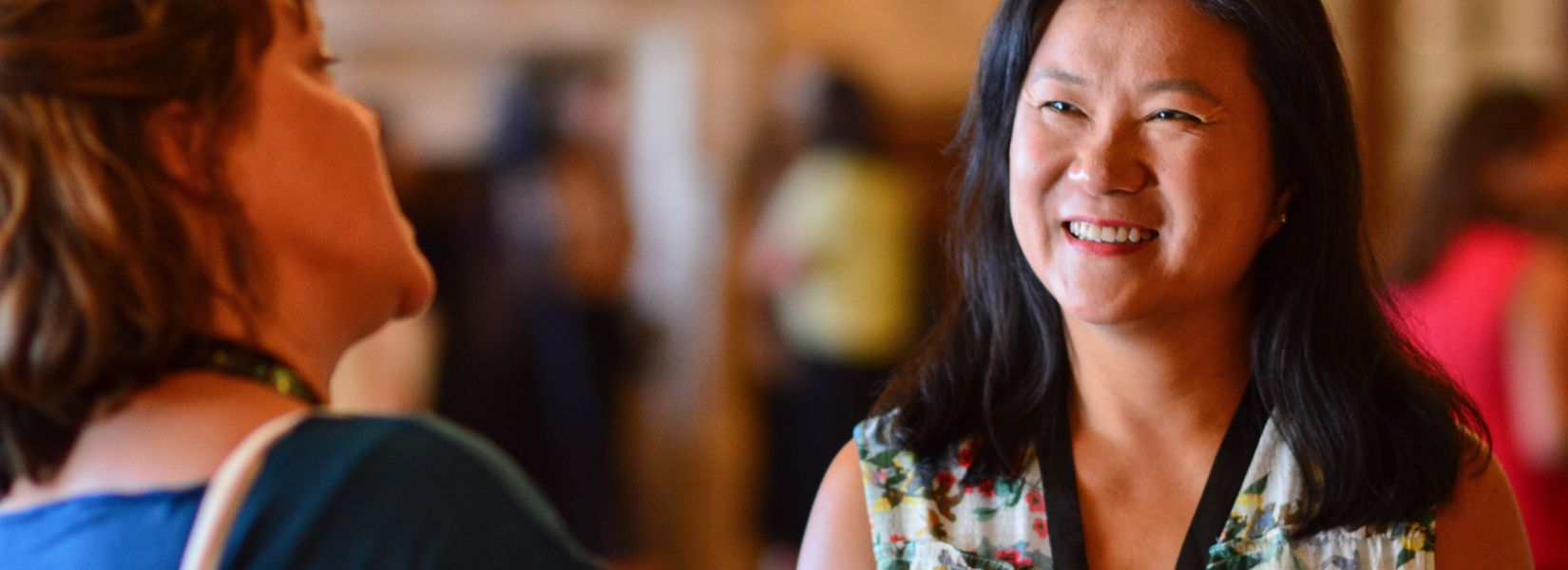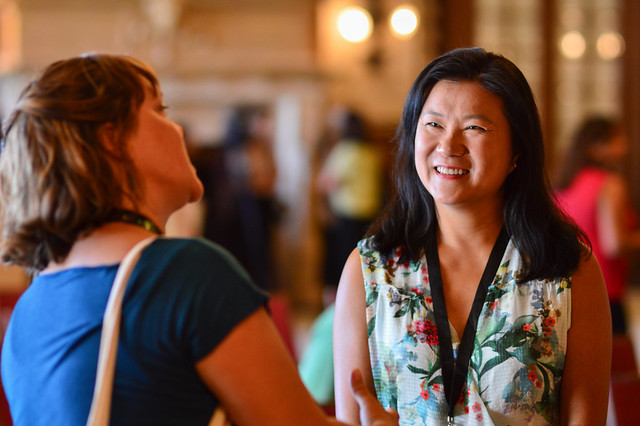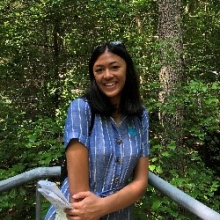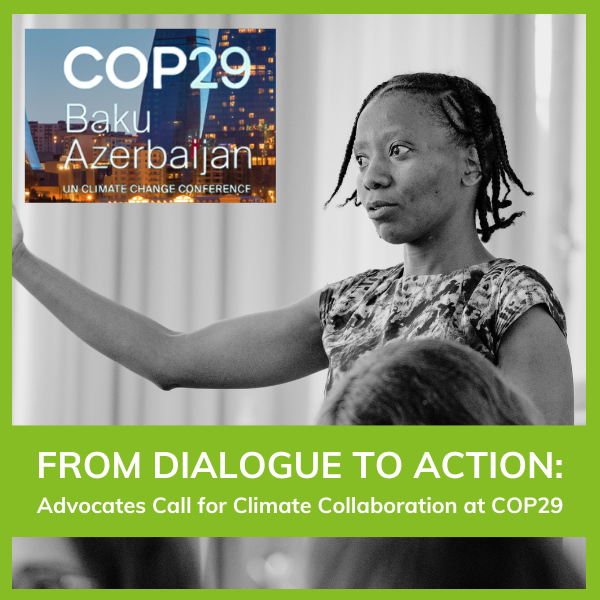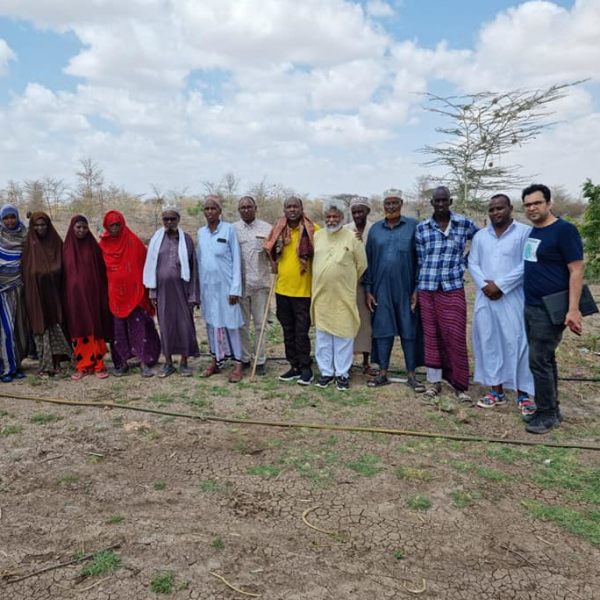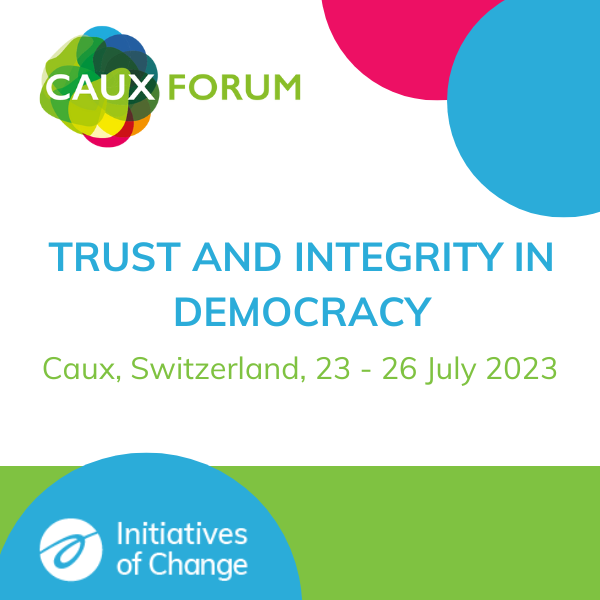Retooling the wheel for regenerative investment
Caux Dialogue on Environment and Security 2020
22/07/2020By Karina Cheah
Chau Tang-Duncan, co-founder and chief operating officer of Earthbanc, has been coming to Caux regularly since 2010. It was there that she first embraced the role she could have in connecting people and planet. She first presented the concept of Earthbanc (then called ‘Goodbanc’) at the 2019 Caux Dialogue on Land and Security. ‘It’s about doing something for the earth, not doing something good,’ she explains. ‘Earthbanc is trying to reshape the whole financial ecosystem to support regenerative investment.’
Earthbanc’s other founder, Tom Duncan, took part in the 2007 Caux Scholars Program and went on to help launch the Environment and Economy Group, which was a precursor to the Caux Dialogue on Land and Security (CDLS). At CDLS in 2013, 2018 and 2019, he gathered people with a common vision who want to make systemic change. Chau explains that Earthbanc’s team members work in the private sector and with governments, but have also been involved in grassroots efforts, allowing them to bridge the gap between these two worlds. Earthbanc works with a broad coalition of groups including Initiatives of Change (IofC), Initiatives for Land, Lives, Peace (ILLP) and CDLS. Among those involved are Jennifer Helgelson, a founding members of CDLS and IofC’s liaison to the United Nations Climate Change Conference; Rishabh Khanna from ILLP; Irina Fedorenko, managing director of the Caux Dialogue on Environment and Security (CDES), and Alan Channer, co-organizer of the Summer Academy on Land, Security and Climate.
The Earthbanc team has brought knowledge-based concepts and ideas to the table as well as the dialogue-based approach that lies at the heart of Initiatives of Change. They deeply believe in Earthbanc’s ability to reshape the financial system to be fairer and more efficient for all. ‘All actors can work together to help capital flow from big institutions to small,’ Chau explains, ‘and then to help the small grow, so that the capital can be recycled and paid forward.’
Since the 2019 Caux Dialogue, Earthbanc’s team has engaged in dialogue with its partners on offsetting carbon and on such regenerative finance instruments as green and blue bonds (bonds that are used to fund environmentally friendly projects). They are currently working to launch its digital platform and software for more widespread availability. If they are to succeed, Earthbanc’s regenerative financing mechanisms must be accompanied by a change of hearts and minds: so that investing in environmental protection is seen as a benefit rather than a cost. ‘We have to change our way of thinking, from a “risk” to a “benefit” or an “investment,”’ Chau says. ‘Everyone invests in change and impact, and we all benefit from it.’
This principle, along with establishing ‘healthier and wealthier livelihoods’ to create stability in post-conflict regions where land is scarce or sought-after, lies at the heart of Earthbanc’s values. It’s no coincidence, then, that the concept was first presented at the Caux Dialogue on Land and Security, where these critical issues intersect. The initiative was driven by changemakers inspired by their time at Caux, who shared a desire to drive systemic change without facing the daunting task of creating a new financial system altogether. ‘We’re not reinventing the wheel,’ Chau explains, ‘we’re making it more efficient and interconnected.’
Chau Tang-Duncan was a speaker on the livestream panel on "Climate Finance: catalyst of holistic solutions" during the Caux Dialogue on Environment and Security 2020. Watch the replay here.
________________________________________________________________________________________________________
Karina Cheah is a rising senior at Colgate University (Hamilton, NY, USA) and is currently working for Initiatives of Change Switzerland as an intern for communications and the Caux Dialogue on Environment and Security. She is pursuing a Bachelor of Arts in International Relations with a double minor in French and Creative Writing and plans to continue with all three fields in her postgraduate education. Her academic areas of interest include the intersection between foreign and domestic policy and the politics of Southeast Asia. In addition to her work with Initiatives of Change Switzerland, she is finalizing a short story collection entitled This Side of the Veil, available for purchase in July 2020.
